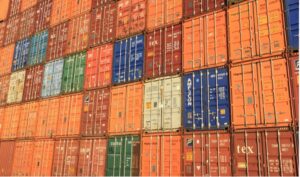Navigating the intricate web of international freight and logistics can be a daunting task, especially when it comes to China freight to Canada. Whether you’re a seasoned importer/exporter or just dipping your toes into the world of global trade, understanding the intricacies of shipping from China to Canada is paramount for successful business operations.
Choosing the Right Shipping Method

One of the first decisions you’ll encounter when shipping goods from China to Canada is selecting the most suitable shipping method. The choice typically boils down to air freight or ocean freight.
Air Freight
Air freight is renowned for its speed and reliability. It’s ideal for time-sensitive shipments or products with a short shelf life. While air freight may come at a higher cost compared to ocean freight, the swift delivery can often justify the expense, particularly for urgent deliveries.
Ocean Freight
On the other hand, ocean freight offers a cost-effective solution for shipping large volumes of goods. It’s the preferred method for bulky or non-perishable items. Although ocean freight generally takes longer than air freight, careful planning and scheduling can mitigate delays.
Customs and Import Regulations

Navigating customs and import regulations is a crucial aspect of international shipping. When importing goods from China to Canada, it’s imperative to adhere to the customs requirements of both countries.
Documentation
Accurate and complete documentation is paramount for smooth customs clearance. This includes the commercial invoice, packing list, bill of lading, and any other relevant certificates or permits. Ensuring all paperwork is in order can prevent unnecessary delays at the border.
Tariffs and Duties
Import duties and tariffs vary depending on the nature of the goods and the trade agreements between China and Canada. Conducting thorough research or seeking guidance from customs brokers can help estimate the applicable tariffs and duties, allowing for better cost estimation.
Calculating Shipping Costs

Determining the total shipping costs involves considering various factors, including transportation fees, customs duties, insurance, and handling charges.
Freight Rates
Freight rates for China freight to Canada fluctuate based on factors such as fuel prices, demand, and capacity. Comparing quotes from multiple freight forwarders or carriers can help secure competitive rates.
Additional Charges
It’s essential to account for any additional charges that may arise during the shipping process, such as port fees, customs clearance fees, or storage charges. Factoring in these expenses ensures a more accurate budget forecast.
Packaging and Labeling Requirements

Proper packaging and labeling are essential to safeguarding your goods during transit and facilitating customs clearance.
Packaging
Goods should be packaged securely to withstand the rigors of transportation. Utilizing sturdy boxes, padding materials, and securing fragile items can minimize the risk of damage en route.
Labeling
Clear and accurate labeling is crucial for efficient handling and identification of shipments. Each package should be labeled with pertinent information, including the consignee’s address, shipment details, and handling instructions.
Tracking and Managing Shipments

Effective shipment tracking and management are vital for keeping tabs on your goods throughout the shipping process.
Tracking Tools
Many freight forwarders and carriers offer online tracking systems that allow shippers to monitor the status and location of their shipments in real-time. Leveraging these tracking tools provides visibility and peace of mind.
Communication
Maintaining open communication with your freight forwarder or logistics provider is key to resolving any issues or addressing concerns promptly. Regular updates and proactive communication can help mitigate potential delays or disruptions.
Dealing with Potential Delays and Issues
Despite meticulous planning, unforeseen delays or issues may arise during transit. Knowing how to address these challenges is essential for minimizing disruptions.
Contingency Planning
Developing a contingency plan enables you to respond swiftly to unexpected setbacks. This may involve having alternative shipping routes or modes of transportation in place to circumvent delays.
Proactive Resolution
In the event of a delay or issue, proactive communication and collaboration with your freight forwarder or carrier can expedite resolution. By working together to identify solutions, you can mitigate the impact on your supply chain.
Hiring a Freight Forwarder or Logistics Provider

Navigating the complexities of international shipping can be overwhelming, especially for newcomers to the industry. Partnering with a reputable freight forwarder or logistics provider can streamline the process and alleviate logistical burdens.
Expertise and Resources
Freight forwarders possess the expertise and resources to navigate the nuances of international shipping. From customs clearance to transportation logistics, they handle the intricacies on your behalf, allowing you to focus on your core business operations.
Customized Solutions
A reputable freight forwarder can tailor solutions to meet your specific shipping needs. Whether you require door-to-door delivery, consolidation services, or warehousing, they can customize a solution that aligns with your requirements and budget.
In conclusion, understanding the ins and outs of China freight to Canada is essential for successful international trade. By familiarizing yourself with shipping methods, customs regulations, cost considerations, and logistics management, you can navigate the complexities with confidence and efficiency.





